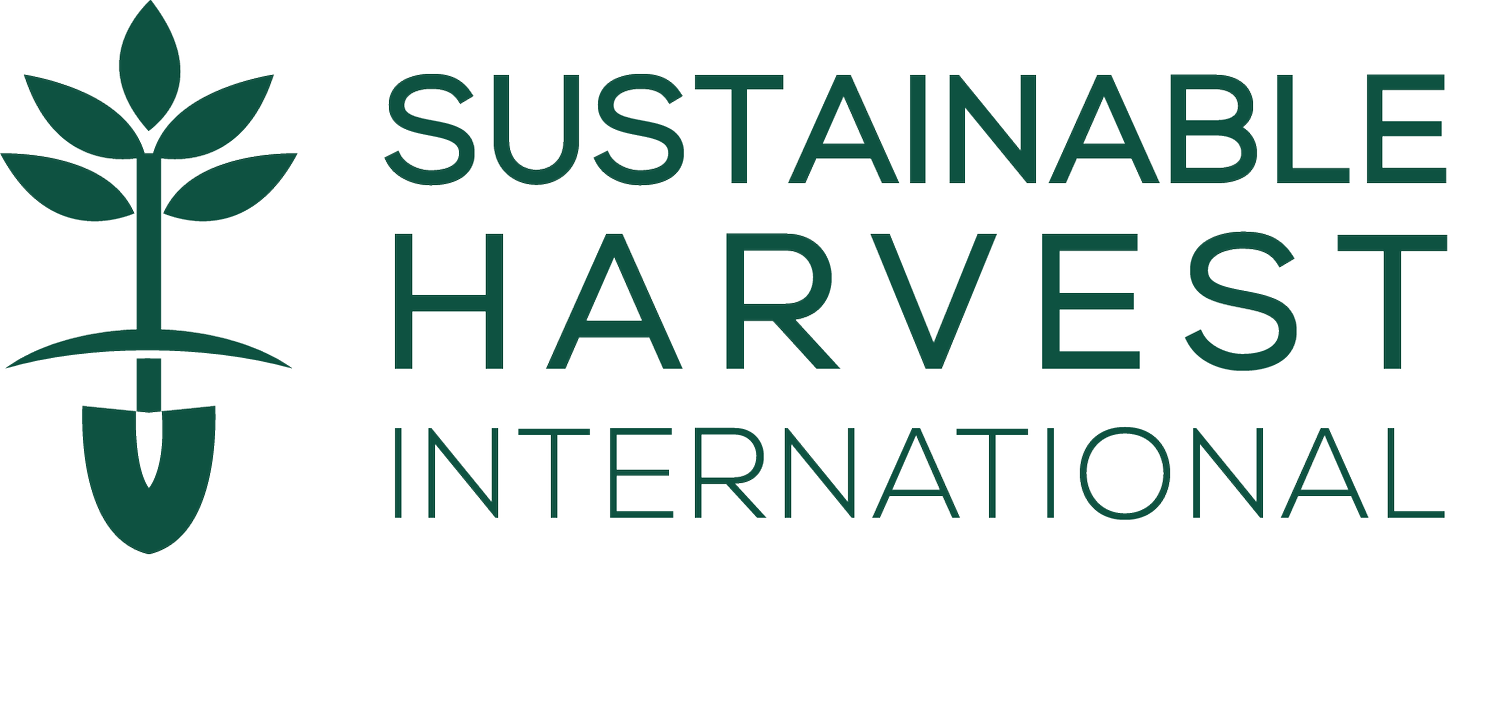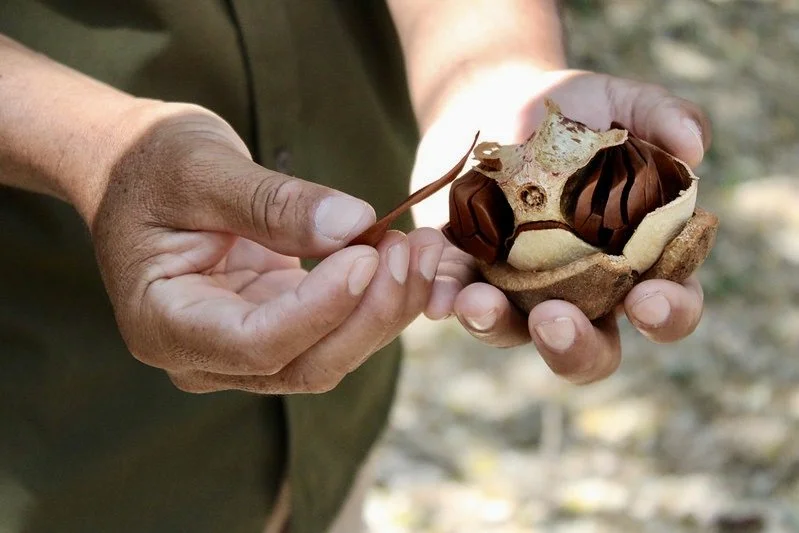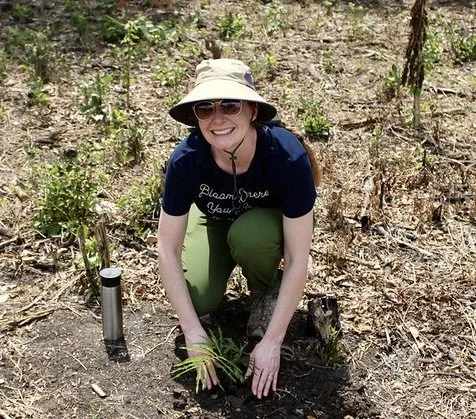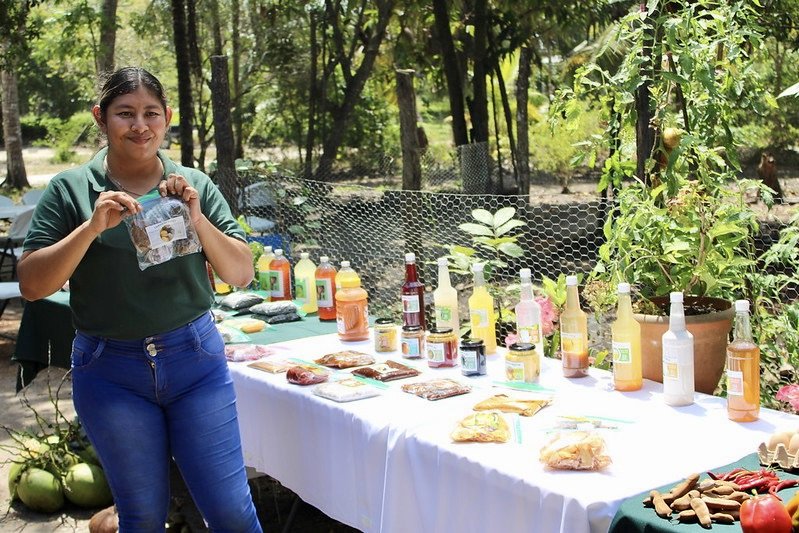In February 2024, Sustainable Harvest International (SHI) Board of Directors and staff members gathered in the north of Belize to witness partner farmers in action. We invited three board members to share their experience of how SHI’s sustainable farming practices transform the lives of farming families. The success of these Belize farmers and of hundreds of other SHI families is the foundation of SHI’s ambitious vision to transform 1 million farms in Central America.
Edith, Katherine, and Judith come from different backgrounds and interests. Through their work on the SHI Development Committee, they share a strong commitment to SHI’s fundraising efforts and plans for growth. All three returned from this invigorating trip with a deep appreciation for the hard work every family dedicates to their success in SHI’s program.
Edith Cecchini, Vice Chair
Edith, with her background in international education, was particularly struck by the many sustainable farming practices taught. As a lover of nature, she marveled at how SHI’s partner farmers actively restore ecosystems and conserve biodiversity.
SHI Board Vice Chair Edith Cecchini plants a seedling on SHI-Belize partner farmer Felipe Marin's land.
It was my first time visiting Belize, and what a learning experience it was – from getting to know the farmers and the Belize team, to seeing the impressive diversity of plants in participants’ gardens and fields, and realizing the incredible amount of work and pride everyone has in cultivating the land. I saw many plants that I had never seen before (but enjoyed the fruits of!), such as peanut plants and cotton plants, as well as old favorites, such as cilantro, papaya, passion fruit, and mahogany trees. I appreciated learning more about the types of naturally made anti-fungal and anti-pest “potions” that the field technicians are trained to develop and use. One of the highlights for me was a lunch at a farmer-participant’s home where the SHI-Belize team had brought together tables of produce from the farms and products made from those items, which help provide additional income for the participants.
Indira Patt, SHI-Belize Programs + Partnerships Coordinator, shows the products family farmers make with her excess harvest in front of SHI-Belize partner farmer Miriam Velasquez's garden.
Katherine Gundling, Board Member
Katherine, whose career focuses on the connections between climate and public health, was impressed by the improved health in partner families. She noted how sustainable practices not only improve the environment but also reduce the effects of pollution and climate for communities.
SHI board member Katherine Gundling in SHI partner farmer Marta Oviedo’s agroforestry parcel.
Quiz question: What is the Shipstern Conservation and Management Area (“Shipstern”) in Belize?
Answer: Shipstern is a key protected conservation area located a short distance from SHI’s regenerative organic farming communities, and it safeguards a large array of rare habitats and the North-eastern Biological Corridor which is home to threatened jaguars and many endangered species of flora and fauna.
After gaining foundational knowledge about SHI’s activities in Belize on my first trip in 2018, this return trip opened my eyes to the value of knowing one’s neighbors and collaborating to achieve common goals. Shipstern and the biological corridor are a product of public-private partnerships that now foster the essential forestland, waterways and wildlife that bolster community livelihoods and steady the local weather patterns. SHI-Belize is playing a crucial role in the success of Shipstern’s partnerships by contributing training in the cultivation and growth of native trees and plants that have been severely depleted in recent years.
A related insight struck me during our conversation with the Shipstern ranger; both Shipstern and SHI face the same diverse pressures in their efforts to restore the health of the environment and its inhabitants. These pressures include human-caused deforestation and development, nearby commercial scale use of herbicides, pesticides and synthetic fertilizers, diminishing fresh water resources, poaching, and the increasingly ruinous impacts of severe storms and droughts, to name a few. The challenges are formidable and interrelated, but SHI’s growing partnerships in Belize, Panama, and Honduras are mobilizing talent, both local and international, to implement exciting and effective solutions. And there is nothing quite like seeing the joy on a farmer's face when the wildlife returns to a healthy "new" home.
Judith Pekala, Board Member
Judith, with a background in teaching, focused on the social aspects of SHI's work. She was moved by the amount of work every farmer and field trainer gives to perfecting sustainable farming practices. She recognized the importance of SHI's holistic approach, which combines technical training with community building and empowerment.
SHI board member Judith Pekala holds a coconut during the SHI board trip to Belize.
As a first time Board Member, first time visitor to Belize, and first time meeting the SHI community (members, staff, and local farmers and families), I have to say that watching the videos andlooking at SHI’s Facebook and Instagram does not do justice to all that SHI has done, is doing, and is planning for the future. I knew about farming prep, planting, and all the hard work and care that goes into the whole process of growing food. Yet, I was in awe as to how hard the SHI team and partner farmers work and their dedication. I have enclosed a picture of the mahogany pod, the “life,” and then the seedling before planting. We were able to plant some mahogany baby trees at one of the farms and then witness the growth at another. All I can say is, it’s incredible! Also, everyone was so welcoming and appreciative, which is so heartwarming.
Mahogany seeds held by Shipstern conservation ranger.
Mahogany seeds preparing for planting at Santa Martha, Belize’s community nursery.
Belize left Edith, Katherine, and Judith with a renewed sense of purpose and dedication to supporting SHI’s mission. They saw firsthand how our efforts make a tangible difference in the lives of farming families and communities, and they are committed to continuing their support to help SHI reach its goal of partnering with as many low-income rural communities as possible.
Please join Edith, Katherine, and Judith in supporting family farmers today.
We simply can’t do it without you and the community of committed donors who have transformed the lives of hundreds of SHI farming families. We have no time to lose.
To learn more about SHI’s solutions or how you can support us, please contact us at hello@sustainableharvest.org.
This blog post was edited by Lee Herrick, long-time board member and another member of the Development Committee.









